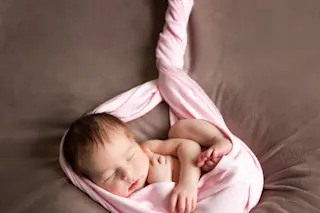None of us hatched. All of us were born live, and we might seem to think of this as the default for mammals. But that’s not so. Some mammals still lay eggs, just as our ancestors did for millions upon millions of years. The question is when our forebears made the switch.
A handful of living mammals start their lives by breaking out of eggs. The duck-billed platypus and spiny echidna belong to an archaic group of mammals called monotremes that split off from other early mammals more than 100 million years ago. And, to this day, these mammals reproduce by laying small, spherical eggs that protect the gestating puggles (that is, a baby platypus or echidna) inside, until they’re ready to push their way out.
The way monotremes keep the generations going is a look into the deep past. Over 300 million years ago, the early ancestors of mammals ...














